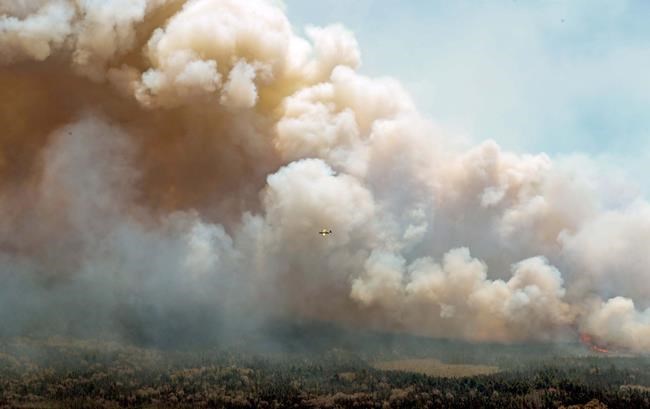HALIFAX — A 22-year-old Nova Scotia man has been charged with lighting a fire last May that grew to become one of the largest wildfires in the province's history.
The Barrington Lake fire southwest of Shelburne, N.S., was ignited on May 26, 2023, and burned 23,000 hectares before it was brought under control on June 13 and extinguished more than a month later amid heavy rain. The fire forced the evacuation of more than 6,000 people and destroyed 60 homes and cottages, as well as 150 other structures.
The province's Natural Resources Department issued a statement Thursday saying Dalton Clark Stewart of Villagedale, N.S., was charged Wednesday under the Forests Act.
He is facing three charges: lighting a fire on privately owned land without the owner's permission; failing to take reasonable efforts to prevent the spread of a fire; and leaving a fire unattended. Violations under the act can result in a maximum fine of $50,000 and up to six months in jail.
Stewart is scheduled to appear in Shelburne provincial court on March 7.
Eddie Nickerson, the warden of the Municipality of Barrington, said some residents of the costal community, which bills itself as the "Lobster Capital of Canada," are still in the process of rebuilding their homes.
"It's still pretty rough down here, and people are still reeling and trying to get their lives back," Nickerson said in an interview.
"I certainly understand that some residents are upset and have an opinion on this, and I respect that. And I also feel sorry for those who have been affected by it and feel that way .... I'm sure the residents here are hoping that the justice (system) is doing the job."
Orlando Fraser, director of Nova Scotia's Conservation Officer Service, said the charges followed an investigation led by the service, with the help of the RCMP.
"We led it because the Forests Act is our mandate," Fraser said in an interview Thursday. He declined to reveal details because doing so could have an impact on the court case.
The Natural Resources Department has said the Barrington Lake fire was the province's largest wildfire since the early 1920s when the government starting keeping records.
The fire in the southwestern corner of Nova Scotia erupted two days before another devastating wildfire started in the Upper Tantallon area amid a large swath of suburban neighbourhoods surrounded by woodlands northwest of Halifax. That fire burned 969 hectares, destroyed 151 homes and forced more than 16,000 residents to flee the area. The blaze was declared under control on June 4 and extinguished July 26. The investigation into that fire has yet to be completed, Fraser said.
"I do appreciate the patience that Nova Scotians have shown," he said. "They are longer investigations."
The two fires were among 220 wildfires reported across Nova Scotia in 2023, marking the province's worst wildfire season on record with 25,000 hectares left scorched.
The Canadian Forest Service determined that when the fires started, the province was experiencing its driest conditions since the Second World War. Both fires spread quickly with the help of strong winds.
Last year's wildfire season was unprecedented across Canada. Flames consumed an area roughly one-quarter the land mass of Manitoba after an unusually warm and dry winter in most parts of the country. In all, more than 200,000 people were forced to flee their homes.
The fires started in Alberta last April and then flared up in British Columbia and Nova Scotia the following month. Then it was Quebec's turn in early June. By June 8, Prime Minister Justin Trudeau stood in the House of Commons and declared, "Canada is burning."
Fires also raged in the Far North, where about 70 per cent of those living in the Northwest Territories were at some point displaced. British Columbia reported its worst wildfire season on record, with about 400 homes destroyed and more than 2.8 million hectares burned.
This report by The Canadian Press was first published Jan. 18, 2024.
Michael MacDonald, The Canadian Press



